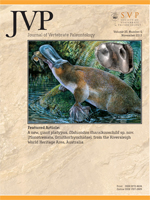Here for the first time we use micro-computed tomography (µCT) scanning techniques to study dental replacement in the Early Triassic cynodont Thrinaxodon liorhinus.We analyzed five specimens ranging 37–87 mm in skull length using µCT scanning, which were supplemented by detailed anatomical analysis of 48 specimens with a basal skull length of 30–96 mm. Our results indicate that lower postcanines are more numerous and present amore complex morphology than the upper postcanines, even in the same individual; only the lower postcanines have more than three sectorial cusps and a cingular collar on the lingual margin. Complexity of the postcanines increases from the smallest individual to specimens with a skull length of 75 mm, but complexity decreases in larger specimens. Our results confirm the alternate replacement of the postcanines and the posterior migration of the postcanine series (including the loss without replacement of the anterior-most postcanines). Observations point to a posterior-to-anterior replacement wave in lower postcanines, but the evidence is not clear-cut for the upper series. The virtual extraction of functional and replacement teeth permitted us to conclude that in most of the cases the upper canines were replaced anteriorly, whereas lower canines were replaced posteriorly. The presence of two simultaneous replacements of the upper canine tooth was observed in two small juveniles, suggesting a higher rate of canine replacement at a younger age. Incisors also had a sequential replacement pattern, and more replacement teeth were present in medium-sized individuals.
How to translate text using browser tools
1 November 2013
Ontogeny of the Early Triassic Cynodont Thrinaxodon liorhinus (Therapsida): Dental Morphology and Replacement
Fernando Abdala,
Sandra C. Jasinoski,
Vincent Fernandez
ACCESS THE FULL ARTICLE






